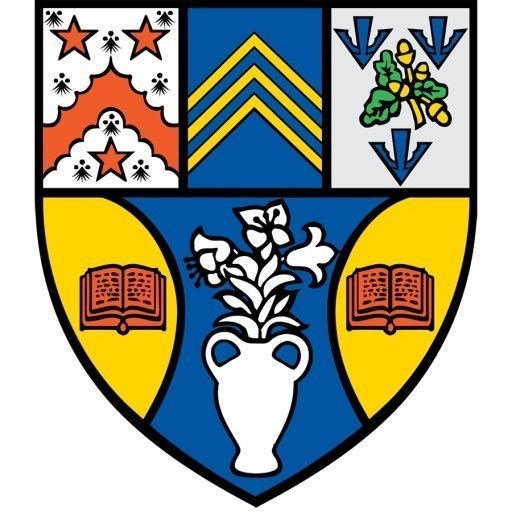Photos of university / #oxford_uni
The Master of Science in Advanced Materials Science at the University of Oxford offers an innovative and comprehensive exploration of modern materials and their applications across various industries. Designed for students with a background in science or engineering, this programme equips graduates with a deep understanding of the fundamental principles governing the behavior, synthesis, and characterization of advanced materials. Students will engage with cutting-edge research topics such as nanomaterials, biomaterials, polymers, ceramics, and metals, gaining both theoretical knowledge and practical skills essential for pioneering developments in technology and industry.
Throughout the course, students will benefit from the university’s world-class facilities and expert faculty who are at the forefront of materials research. The programme emphasizes interdisciplinary approaches, encouraging collaboration across fields such as physics, chemistry, and engineering to foster innovative solutions to real-world problems. Core modules include materials characterization techniques, computational materials science, and sustainable materials, complemented by optional courses tailored to individual interests.
Research forms a central part of the MSc experience, with students undertaking a substantial research project that allows them to apply their learning to solving complex scientific challenges. The dissertation often involves collaboration with industry partners or research institutes, providing invaluable insights into practical applications and potential career pathways. Graduates of the programme are well-prepared for careers in academia, research and development, the manufacturing industry, or further postgraduate study.
Participation in this programme also develops critical thinking, problem-solving, and communication skills, essential for leadership in technology-driven environments. The Oxford MSc in Advanced Materials Science is recognized for its depth, rigor, and prestige, making it an excellent choice for those aspiring to contribute to innovations in materials technology and sustainable development.
Modules in your main subject area
Students who register for the award will specialise in one of seven main subject areas. These are Archaeology, Art History, Architectural History, History, Literature, Creative Writing, Philosophy or Political Economy. To qualify for the award of the Certificate, you will need to obtain at least 60 CATS points (but no more than 80 CATS points) in your chosen main subject area. Ten of these points will come from taking an introductory course in that main subject area (see below for details of the introductory courses). The remainder of your credits in your main subject area, up to a maximum of 70 points, will come from taking weekly classes, short online courses, linked day schools, or classes offered in Oxford University Summer School for Adults (OUSSA).
Modules outside your main subject area
Your remaining credits need to be obtained by completing courses outside your main subject area. The course is designed in this way to encourage breadth of study and to enable you to take advantage of the wide range of courses in different subject disciplines that the Department offers. Courses are available in Archaeology, Architectural History, Art History, Classics, Computing and Mathematics, Creative Writing, Economics, Environmental Conservation, Film Studies, History and Politics, Languages, Literature, Local and Social History, Music, Natural Sciences, Philosophy, Psychology and Counselling, Religious Studies and Theology.
Introductory course
Students will, during their first year of study, take an introductory course in their main subject area to give them a grounding in the concepts and methods relevant to the subject discipline. Some of the introductory courses are available online and others are offered face-to-face. The introductory classes are listed below; please follow the link to obtain more information about the individual courses:
- Archaeology: Archaeology in Practice (online)
- Architectural History: Learning to Look at Western Architecture (online)
- Art History: Learning to Look at the Visual Arts (online)
- Creative Writing: Getting Started in Creative Writing (online)
- History: The Making of Modern Britain (online)
- Literature: Critical Reading (face to face or online course)
- Philosophy: Introduction to Philosophy (online)
- Political Economy: Public Policy Economics
Study Skills
Students will, in addition, undertake a Study Skills module during their first term of study, and the cost of this is covered by the Certificate's programme fee. CATS points obtained from Study Skills courses are included in the 120 CATS points for the Certificate. You will be enrolled automatically on our online Study Skills course.
Students who are registered for the Certificate of Higher Education are normally required to attend at least 70% of sessions for each module, or, in the case of online modules, actively to participate in online discussions on a regular basis.
Who may apply?
This course requires no formal academic qualifications. Successful applicants will be those able to demonstrate genuine interest in and enthusiasm for the subjects that they propose to study. They will need to have the time and commitment needed to work for a University qualification. Candidates will need to meet the University`s standard English Language requirement for undergraduate entry, details of which can be found here.
At registration, a student may transfer in no more than 30 CATS points at Level 4 from the Department’s weekly class or online course programme, so long as these shall have been gained within four years prior to registration for the Certificate.
All students applying for registration will be given an interview, via Skype. The interviewer will be looking for evidence of genuine interest in the subjects selected as the main and the secondary subject areas; understanding of the commitment that will be needed to pursue study on a part-time basis; and the availability of sufficient time to devote to the course.
How do I apply?
You should download the application form and once completed you should email it to certhe@conted.ox.ac.uk putting your name and the course title in the subject field. Together with your completed application form you should also email the following.
- A written statement of 400 words stating why you wish to study your chosen main subject. For example, applicants in archaeology might write about visits they have made to sites of archaeological interests or to museums, explaining what they saw and why it was of interest. Applicants in art history or architectural history might write about a favourite painting or building or other form of visual culture, explaining how they thought that the effects had been achieved and the context of the work, or about a visit to a particular art gallery. Applicants in literature, history or philosophy might write about a book or article which they had found especially enlightening, and explaining why. Applicants in creative writing might explain their current preferred genre and why they found it suited their purpose.
- Proof of your English Language Ability if you are a non-native English-speaking applicant.
You will also need to arrange for a reference to be emailed to us. If possible, your referee should be someone who can comment on your academic ability and background, but where this is not appropriate, please choose a referee who can vouch for your motivation, commitment and potential. A reference from a family member is not acceptable.
The application deadline for this course is 11 May 2017. The receipt of your application will be acknowledged via email. All applicants will be given a telephone interview. The interviewer will be looking for evidence of genuine interest in the subjects selected as the main and secondary subject areas; understanding of the commitment that will be needed to pursue study on a part-time basis; and the availability of sufficient time to devote to the course.
This a popular course so we recommend you apply by the earlier deadline. Late applications will be considered if there are still places on the course, but applications cannot be considered after the course has begun. Please contact the Programme Administrator at certhe@conted.ox.ac.uk to check availability. The final decision on admission to the course rests with OUDCE.
The University of Oxford offers a comprehensive range of financing options for students enrolled in its degree programs to facilitate access and support the diverse financial needs of its student body. Tuition fees vary depending on the course and the level of study, with current annual fees for undergraduate courses typically ranging from approximately £9,250 for domestic students to higher amounts for international students, reflecting the university’s commitment to accommodating a global student population. Postgraduate tuition fees are subject to variation based on the faculty and specific program, often ranging from £10,000 to over £30,000 per year.
Oxford provides a robust scholarship programme aimed at reducing financial barriers for outstanding students. These scholarships are awarded based on academic merit, financial need, or a combination of both. For undergraduate students, numerous scholarship schemes are available, including those offered by individual colleges, which are often fully funded and cover tuition fees and living costs, thereby enabling students from diverse economic backgrounds to attend. Prospective students are encouraged to apply early, as scholarship deadlines often coincide with or precede application deadlines.
Postgraduate students at Oxford benefit from extensive funding opportunities, including college-specific scholarships, departmental awards, research council grants, and external funding sources. Many of these scholarships are highly competitive and are awarded based on academic excellence and potential contribution to the university community. Additionally, Oxford offers various bursaries, usually means-tested, to assist students with living costs. These bursaries do not require repayment and are intended to ensure that financial circumstances do not inhibit academic pursuits.
Beyond scholarships and bursaries, students have access to government student loan schemes, which in the UK are provided primarily through the Student Loans Company, offering loans for tuition and maintenance that can be repaid after graduation once certain income thresholds are met. International students may need to explore external scholarships or sponsorships, as well as private loans available in their home countries.
The university also provides numerous financial guidance services to assist students in navigating funding options, understanding repayment responsibilities, and planning their finances throughout their studies. Additionally, work opportunities are available on campus, such as research assistantships, teaching roles, or temporary jobs, which can supplement a student's income.
Overall, Oxford’s financing studies framework is designed to promote equitable access and support students financially through a combination of institutional scholarships, governmental aid, external funding, bursaries, and work opportunities. This multifaceted approach aims to reduce financial stress and help students focus on their academic and extracurricular pursuits, ensuring that talented individuals can benefit from an Oxford education regardless of financial background.
The Master of Business Administration (MBA) program at the University of Oxford is a highly prestigious and rigorous course designed to develop the leadership, management, and strategic skills necessary to excel in a dynamic global business environment. Offered by the Saïd Business School, the program attracts students from diverse professional backgrounds, fostering a vibrant community rich in international perspectives and experiences. The Oxford MBA typically spans 12 months of full-time study, emphasizing experiential learning, entrepreneurial thinking, and ethical leadership.
Curriculum focus areas include finance, marketing, operations, strategy, entrepreneurship, and leadership. The program incorporates a combination of lectures, workshops, case studies, team projects, and practical internships to provide students with real-world insights and hands-on experience. Additionally, students are encouraged to engage in extracurricular activities such as participating in clubs, competitions, and networking events to enhance their professional growth and connections within the global business community.
The Oxford MBA emphasizes global outlooks and responsible management practices, aligning participants with the university’s broader mission to contribute positively to society. Students benefit from access to the university’s extensive alumni network, world-class faculty, and the historic setting of Oxford, fostering intellectual curiosity and lifelong learning. Admission is competitive and requires a strong academic record, work experience, leadership potential, and clear career ambitions.
Graduates of the Oxford MBA program often go on to leadership roles in consulting, finance, technology, entrepreneurship, and non-profit organizations worldwide. The program also offers optional pathways for specialization or dual degrees, providing tailored educational experiences to meet individual career goals. The university’s reputation for academic excellence and its strong focus on ethical and sustainable business practices make the Oxford MBA an unparalleled choice for aspiring business leaders seeking to make a meaningful impact in their industries and communities.








